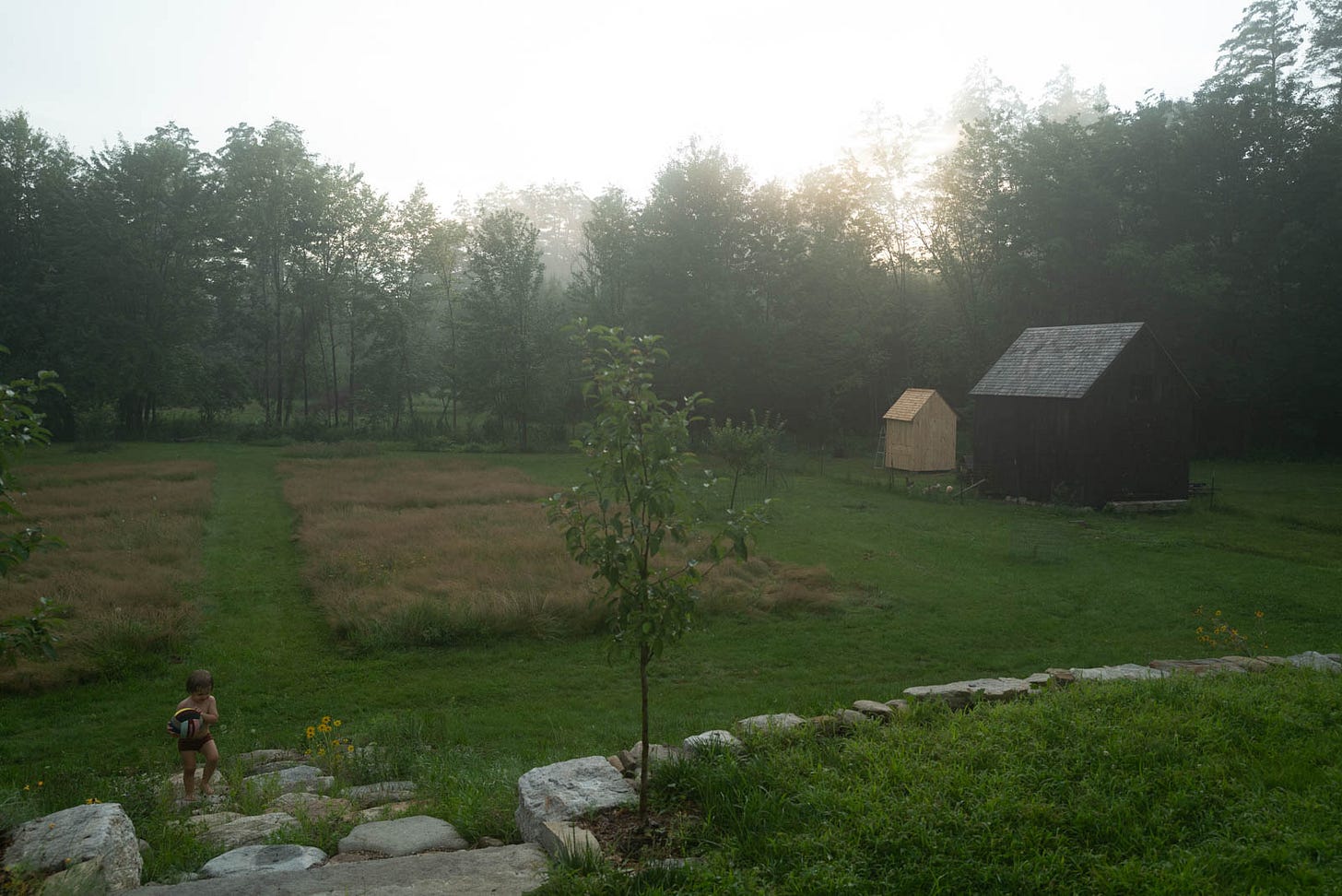“It is a mistake to suppose a man makes a fortune if he knows not how to enjoy it.”
— Vauvenargues
In housing, almost every buy-vs-rent discussion concentrates on cost. Renters must consider losing out on equity and appreciation. Buyers must consider insurance, taxes, closing costs (both when buying and selling), repairs, etc. There are lengthy articles, discussions, and interactive calculators about this dilemma, but they’re fixated on an entirely economic calculus. If you are in a position to seriously consider the question (and are reasonably sure of your financial discipline and algebra skills), I think these resources are something of a distraction.
Housing is an aesthetic question as much as it is an economic one. You are not selecting a financial vehicle, but how you want to live. For instance, you might value a kind of environmental permeability — ensuring it is very easy to go indoors and outdoors dozens of times per day. Perhaps you work from home and simply want to stroll in and out of nature. Perhaps you have a dog or a child who wants to do the same. I value this greatly: the number of steps from my kitchen or my studio to bare grass and flowers should be as few as possible. Rather than travel to a park, I can open a window and hear my children in the sandbox, while I continue working, cooking, or relaxing. There is a corresponding permeability to much city life: while you may not be able to step from an apartment door into quiet greenery, you can walk to stores, cafes, parks, etc much more easily. These are both luxuries (many places have neither feature), and they carry an expense, but they are not caught in the calculus of buy-vs-rent.
Apartment living has many benefits that might be considered costly, but are often worth it. You are generally paying more than owning because you are paying someone else to assume risk. Houses also carry a cost of complexity: Many people do not want to manage their own lawns, roofs, boilers, septic systems, etc. These go beyond economic costs, they also take time and scheduling, even if you hire out every job. No calculator can input these considerations for you, you must think hard about your own desires and consider the tradeoffs yourself.
~ ~ ~
When we bought land in 2018, it had been on the market for about two years. It was judged too expensive per-acre to be worth its location or difficulties. Since we were the buyers, we of course overpaid for it, biting into our house budget. It can be difficult to not feel a little foolish if you purchase something everyone else has passed over. Possibly they know something you don’t.
With a few years of retrospect, that transaction let me realize something. Whenever I seek to get a deal (such as when furniture hunting), I often end up finding a deal. But I tend to do so by accepting something adequately disappointing. By contrast when I am excited enough to be willing to overpay, I am almost always grateful for my lapse in frugality.
If you spend your days indoors, or away from home, and home is simply a place to park a car and sleep, the land was almost certainly not worth it. We thought the land could be made worthwhile, and moreover that we would use it: we would return the scrubby forests to fields and then into gardens, we would take advantage of the village proximity by walking every day. We would make something pretty enough to be considered part of the adornment of the village. Without these desires, its just a lot for a house. With them, there’s no substitute.

There’s a quote from Burke, found in Letter to a Noble Lord:
Expense, and great expense, may be an essential part in true economy. If parsimony were to be considered as one of the kinds of that virtue, there is, however, another and an higher economy. Economy is a distributive virtue, and consists, not in saving, but in selection.
I find this widely applicable. Cost is a variable, but it’s a mistake to consider it the only one. If you look too hard at economizing, you might start to downplay significant desires. Should you buy or rent? Do you want to build things in a garage? Do you want a pub to walk to? Do you want neighbors, lodgers, children? Do you already have a spouse? By all means look at the calculator, eventually.
But think of everything else you can, first. It shouldn’t be a short list.




I used to live next to an interstate. Now my office and kitchen are next to each other, and both are five steps from touching grass. But more than that land is agency. A chance to be your own man.
Indeed it is an aesthetic question. In particular, the aesthetics of the public realm. What is it like to go for a walk? What are the sensory and emotional textures between here and the cafe, or the grocery store? Too often, the context surrounding a single family home is something designed to be punched through as quickly as possible by a car, rather than something to be luxuriated in by a pedestrian.
Apartments also exist in these soulless places, of course, but the housing stock in pleasant public realms is almost all multifamily.